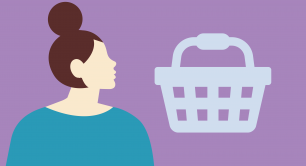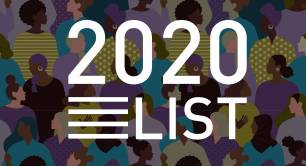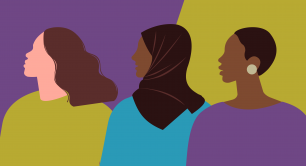Wisdom from the WISE: Five tips on steering a social startup through crisis
This year’s WISE Women of Inspiration list featured not only seasoned social entrepreneurs, but also some who started a social venture just as Covid-19 hit, or not long before. We invited four of them to tell their stories at last week’s WISE Up webinar – read on and watch some short extracts to hear tips they shared on successfully steering a social business through times of upheaval (find the full recording of the WISE webinar here).
1. Prioritise staff wellbeing (including your own)
Michelle John founded Parental Education Growth Support (PEGS), a community interest company that helps parents and professionals to deal with child-to-parent abuse, in April this year. The first UK lockdown saw a 70% increase in violence from children towards their parents, John said, and PEGS has already helped 300 families this year.
While responding to this significant demand, it was also essential to look after her team. “We recognise that the work we do can have a massive impact [on staff] so we make sure that our wellbeing is at the forefront,” said John. The company works with a counsellor to support staff and volunteers, and they take regular ‘wellbeing breaks’ and days off.
2. Be confident in your leadership style
Hannah Broughton founded two social enterprises: Twinkleboost, which helps young children's language development and, more recently, The Therapeutic Forest, which helps families, carers and vulnerable young people to reconnect with nature for better mental health and wellbeing. Before the pandemic, she had considered changing her leadership style – while she is generally cautious and likes to plan ahead, she wondered if a good entrepreneur has to take risks. But her calm, measured approach has turned out to be an asset.
3. Understand that people’s needs change when moving online
People from different backgrounds will experience the upheavals caused by the pandemic in different ways, and that includes accessing digital services. Dr Seyedeh Naseriniaki, who in March 2020 founded Chrysalis Crafts Coventry to support asylum seekers, migrants and ethnic minorities with arts and wellbeing sessions, said that going digital raised new issues. Communicating via Zoom, rather than face to face, feels like “going into people’s houses,” she said – so some of the people she works with may feel very self-conscious. “Everything should be changed and re-tailored again,” she added.
Broughton also had to adapt to the changing needs of her beneficiaries. Keeping babies and young people in front of a screen just doesn't work, so she and her team had to rethink all the content to make it more interactive. (Broughton has gathered lessons learned from switching both her enterprises to online delivery in an open-access toolkit.)
4. Tap into the “massive” value of your network
Michelle Ferguson, director of Scotland’s Bravest Manufacturing Company – which employs armed forces veterans and others with disabilities – pointed to the importance of a network beyond immediate colleagues. “I wouldn’t have coped throughout this time without the support of other people.” The willingness to collaborate among people from very different industries had been a real help, she said.
John echoed this. “Everybody you will meet, you will learn something from them... Networking is massive. I’m really interested in learning about everybody else’s business skill set,” she said. “I’m a big believer in community cohesion and collaboration.”
5. Pause to celebrate and reflect
Asked what she might have advised herself if she could go back in time to before the pandemic, Broughton said she’d learned how important it was to celebrate little successes as you go along. “It was always, ‘We’ve got the next thing to do now, and when this is all finished, then we’ll all celebrate.’ But this is still ongoing and looking back, it would have been ok to take a quick breather after each positive thing was launched.”
Ferguson also advised others in similar situations to slow down from time to time. “Decisions were fast and furious, and I think there should have been a bit more time to reflect during that period, rather than running to the next thing.”
You can find the full recording of the WISE webinar here.
Find more stories and interviews with leading women in social enterprise in our WISE Collection.
Thanks for reading our stories. As somebody working in the impact economy, you'll know that producing quality work doesn't come free. We rely on paid subscriptions and partnerships to sustain our purpose-led journalism – so if you think it's worth having an independent, media platform to share your new and insight across the globe, please consider subscribing.




